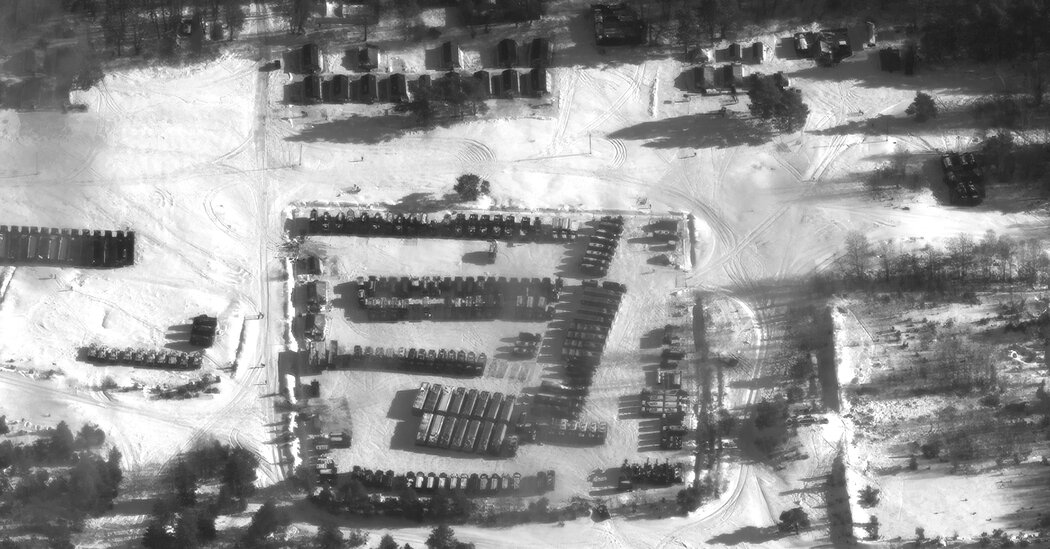
Mr. Putin has also deployed Special Operations forces — some 1,500 troops — near and even inside the Ukrainian border, the officials told lawmakers. Those troops, they said, work closely with the Russian military intelligence agency, the G.R.U., which has in the past directed cyber and other attacks on foes.
European officials tend to be more skeptical that Mr. Putin would try to take the country in a large-scale invasion. Some believe that he would seek to take the Donbas region of eastern Ukraine, where a grinding proxy war has been underway since 2014.
Another theory is that Mr. Putin could expand that operation in an effort to annex all of eastern Ukraine, up to the Dnieper River. Along the way he could try to decimate Ukrainian troops in that part of the country, roughly half of the Ukrainian military. That could incite panic in the western part of Ukraine — where resistance to Russia might be highest — and prompt people to flee the country. Over time, that could lead top government officials to flee or to try to rule from exile.
American and European officials have made clear that a physical attack over the borders of Ukraine would lead to enormous sanctions on Russia’s banks, trade restrictions on semiconductors and other high-tech items and the freezing of the accounts of Russian oligarchs and leaders. But there is far less unanimity, as President Biden himself has acknowledged, about how to respond to a “minor incursion.” Or even what a minor incursion might be.
European and American officials worry that Mr. Putin might try to stage a coup in Kyiv. Another possibility is a cyberattack devised by Russia that tries to bring down parts or all of Ukraine’s electric and communications infrastructure, similar to the 2015 and 2016 attacks on parts of the country’s electric grid.
European officials say it is unclear how the Western allies would respond to such an attack. If they believed that the cyberoperations were a face-saving way for Mr. Putin to act and then retreat, they note, there might be a temptation to de-escalate and not seek to impose major sanctions, especially if there were few human casualties. On the other hand, a cyberattack could be a prelude to a full invasion, essentially cutting off Ukraine’s ability to communicate or track where Russian forces were coming from.
Michael Schwirtz contributed reporting from Kyiv, Ukraine.




